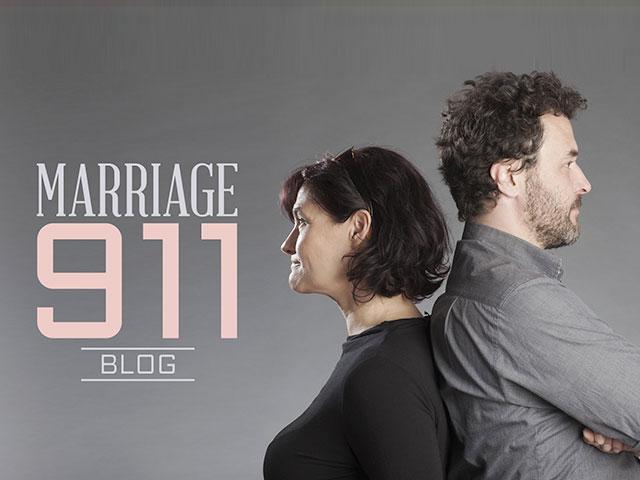Cheap Grace and Easy Forgiveness

“Will you forgive me for hurting you,” James said sincerely, after listening to his wife tell him how his critical nature had repeatedly hurt her. He looked at her intensely, waiting for her response.
“Sure,” Kathy said, though her words were hollow and lacked genuine sincerity. She still seemed to be in pain from feeling dismissed and voiceless. She looked back at him, awaiting his response.
“Thank you,” James said. “I’m glad we got that settled.”
As I looked closely at the couple sitting on the couch at The Marriage Recovery Center, where they had just arrived to participate in a Marriage Intensive, I wondered if the air really had been cleared? Had she truly forgiven him, I wondered? Had he really apologized and would there be depth change? I was skeptical.
Working largely with Christian couples needing significant change in the ways they relate, it is common for one or the other to ask for forgiveness, and equally common for the other to grant forgiveness. Yet, I’ve noticed that this asking for and receiving forgiveness often precluded significant sharing and revealing the depth of the wounds suffered.
I continued working with James and Kathy, cognizant that this style of sharing with one another might offer immediate relief, but short circuit depth change—the kind of change couples came seeking. The power of depth sharing and exploring of wounds could lead to deep healing, but only if each gave the other permission to explore and share the depth of the wound.
As I continued the work, I reflected on the power of collusion—the process of secretly agreeing to something. This process, by the way, is rarely conscious and open, but something akin to “ignoring the elephant in the room.” In the case of quick and easy forgiveness, when there are major issues at stake, it involves avoiding tackling deeper and harder issues.
A short time later the roles were reversed, with James sharing something that had hurt him in their relationship. He did an admirable job of sharing the issue, revealing his hurt, and then followed it up by asking her to forgive him. She quickly did so and both seemed comfortable with their agreement. I decided to do some exploring.
“I’m wondering, James if you have shared the depth to which you feel hurt by Kathy? I’m not suggesting you bag on her, but rather want to ensure you have shared your true feelings and that she then be able to fully empathize with you.”
He sat silent for a moment.
“I suppose you’re right,” James said. “I really have been carrying a lot of hurt around for years for the emotional affair she had. She has apologized and all, but I have never shared with her that I still feel frightened. Am I supposed to dredge all that back up?”
“There is no ‘supposed to,’” I said. “I’m just suggesting that you might want to lengthen out your sharing process. You might want to ask each other questions such as, ‘Is there anything more you’d like to share about this matter?’”
Both looked at each other before Kathy jumped in.
“Now that you mention it, I think we avoid talking about serious stuff,” she said. “We’ve learned somewhere that we are supposed to ask for forgiveness and we sure are supposed to grant it if someone asks for it. We’re not supposed to talk about it again down the road even if we have feelings about it.”
“I think we might do better at making sure an issue is fully talked about,” James stated. “Then, even if we have feelings later on we should still be able to bring them up. So, maybe forgiveness is a process, not an event.”
James and Kathy were very effectively talking through something that causes couples lot of problems—the issue of cheap grace or hasty forgiveness. I offered them these guidelines to consider:
1. Forgiveness is often a process, not an event.
True, depth forgiveness requires true, depth sharing. Be prepared to fully explore an issue, sometimes over a course of time. Do be prepared to forgive, but examine your heart carefully to determine if you are ready and able to forgive.
2. Be prepared to ask for more before forgiving.
It may be that when you are honest with yourself you will ask for more from your mate before saying you have fully forgiven them. It may be that you will ask for greater understanding, empathy and compassion. Offering quick forgiveness, or ‘cheap grace,’ cheats you out of complete healing and emotional connection.
3. Do forgive.
Scripture is clear that forgiveness is something we must do for one another. Scripture tells us, “The sacrifices of God are a broken spirit; a broken and contrite heart, Oh God, you will not despise.” (Psalm 51:17) We are implored to forgive others, and in that same way God will forgive us. (Matthew 6:14)
4. Celebrate greater connection with each other.
As you share openly and honestly, you will feel a greater connection. True, depth healing is so much more rewarding than cheap grace. Try it. Though it may feel awkward at first, really listening to each other and sharing from your deepest self will be very rewarding.
Share your feedback or send a confidential note to me at drdavid@marriagerecoverycenter.com and read more about The Marriage Recovery Center on my website www.marriagerecoverycenter.com and yourrelationshipdoctor.com. You’ll find videos and podcasts on saving a troubled marriage, codependency and affair-proofing your marriage.
